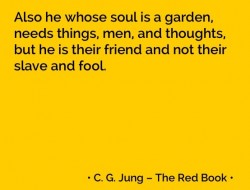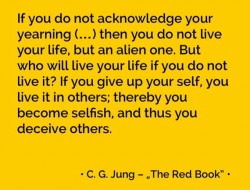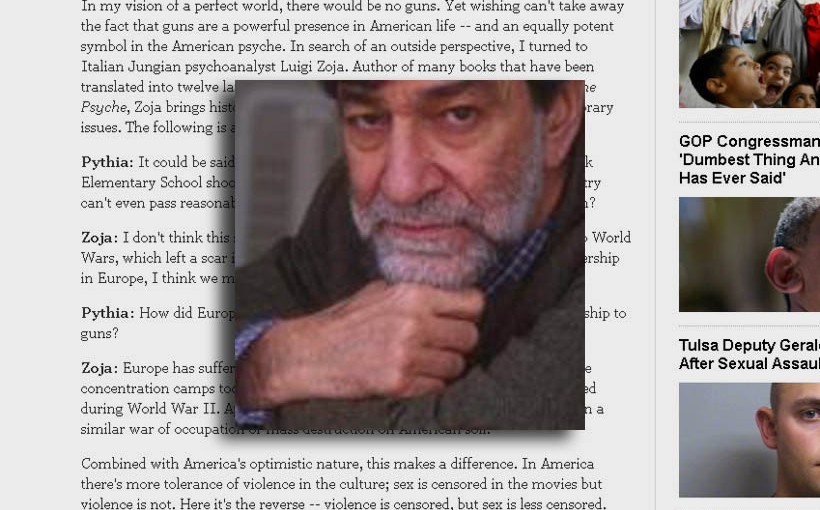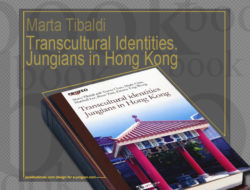Pythia Peay interviews Luigi Zoja, The Huffington Post, March 2013
Luigi Zoja Ph.D., an Italian psychoanalyst and writer. He took a degree in economics and did research in sociology during the late 1960s. Soon thereafter he studied at the C. G. Jung Institute in Zurich. After taking his diploma, Zoja returned to Zurich to work at a clinic for several years. He maintains a private practice in Milan. He also practiced for two years in New York City, during a period that bracketed the terrorist attacks on New York and Washington, D. C. He has taught regularly at the Zurich Jung Institute, and also on occasion at the Universities of Palermo and Insubria. From 1984 to 1993, Zoja was president of CIPA (Centro Italiano di Psicologia Analitica), and from 1998 to 2001 was president of the IAAP (International Association of Analytical Psychology). Later he chaired the IAAP’s International Ethics Committee. His essays and books have appeared in 14 languages.
Most of his essays interpret present-day predicaments (addiction, limitless consumption, the absence of the father, hatred and paranoid projections in politics, etc.) by placing them in the light of persistent ancient patterns, as expressed in myth and classical literature. Archetypal psychologist James Hillman has called Zoja an „anthropological psychologist” as one way of indicating the range and depth of his thinking.
The fragments of the interview:
„Pythia: Why is the hero connected to guns?
Zoja: Because the hero in its most traditional expression, particularly in male-oriented cultures, is somehow always connected with weapons. In humankind’s earliest stages, primitive weapons functioned as an extension of the human arm. Greek-Roman mythology is full of gods represented with weapons. Even the goddess Athena is shown with a spear. Christ is – un-Christianly – at times pictured with a sword. Both the Crusades and the conquest of the Americas were carried out with the Gospel and the sword and, later, the gun.
So there is something almost religious about weapons. This means that you cannot deal with the topic in a logical way, because for many the gun is something sacred.
This is even more complicated in America. Because of its separation between church and state, it’s full of unconscious, undeclared religion: America itself is a religion of democracy, and the gun is a symbol of democracy. So partly because of its history, and partly because the gun belongs to a collective archetype present in every country, guns in America are imbued with a religious quality. (…)
Pythia: In your book [Violence in History, Culture, and the Psyche: Essays (Analytical Psychology & Contemporary Culture)
] you refer to a tradition from ancient Roman times, in which the triumphant conqueror in his chariot had a „double” placed beside him whose task was to whisper in his ear that he was a mortal, flawed human being. What meaning might that have for us in this gun debate?
Zoja: This is an image of that dialogue between our limited ego, which can fall prey to inflation — like a general coming back from a victorious military campaign — and a critical inner voice, which we might hear in dreams, and who checks our pride and reminds us of our limitations.
Today we could use this image to suggest to anyone who is considering buying a gun, particularly a young person, that they first go within and consult this inner voice accompanying the hero, and ask „Is it really necessary? Or am I falling prey to pride and paranoia as a way to compensate my human weakness?”
Tags: analytical psychology, culture, violence




































